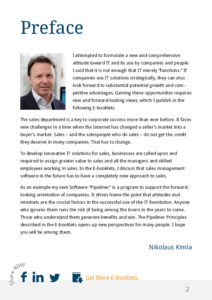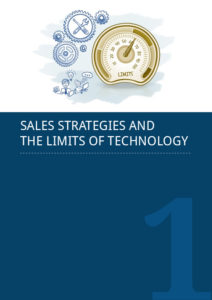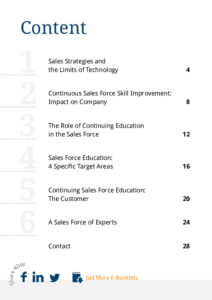Perhaps more than any other vocation, salespeople generally get their educations on the job. There is no university degree for a “Bachelor of Sales.” Any veteran sales rep will tell you that the only real way to learn how to sell is to get out there and do it, fall on your butt, and get back up and keep at it until you succeed.
It isn’t all trial and error, though. While a salesperson is making their way through that (sometimes painful) learning curve, there is oftentimes mentoring involved. This invaluable mentoring can come from an experienced sales rep within the same organization, or from attending seminars or training given by proven sales leaders. It can even come from books or videos of sales techniques. In all cases, intelligent sales reps will take what they can apply from the instruction and run with it, leaving behind anything they feel won’t work for them.
What happens, though, when a sales rep has embraced sales as a career? In almost all cases, what usually occurs is that education – at least in sales technique itself – ceases entirely. The person “already knows it.” It’s usually not just the salesperson who feels this way, either; it’s their sales manager and coworkers, too. The people around a salesperson expect the rep to know all there is to know about sales technique.
Download this free ebook and learn how to give your salespeople a continuing education so that they’re constantly improving.
Chapter 1: Sales Strategies and the Limits of Technology
It is absolutely true that sales strategies (and, therefore, salespeople) require the aid of technology. But even the best of intuitive, usable technology can only take a sales rep so far. Given a state-of-the art technical solution, what other sales tools contribute directly to a sales rep’s survival and further success?
Chapter 2: Continuous Sales Force Skill Improvement: Impact on Company
From the top of a company’s executive structure, the view is all about the future. It of course takes every department in a company pulling its weight in order for that company to succeed. But after PR has spread the news and marketing has generated leads, and the remainder of the company has put in a satisfactory performance, it is always down to the sales force to make or break that company’s bottom line.
Chapter 3: The Role of Continuing Education in the Sales Force
Throughout history, the importance of an education has always been stressed. The general agreement is the better one’s education, the better one’s prospects. There are probably as many arguments in support of or against the standard college education as there are fields to which it could be applied. But one profession that should be of particular educational interest is that of the sales force – and, like salespeople themselves, this does not take a conventional approach.
Chapter 4: Sales Force Education: 4 Specific Target Areas
A continuing education to improve sales force skills can mean the difference between relatively unchanging closing ratios and those that are consistently improving. But looking deeper than a general concept of “sales skills,” here are four key areas that if competently addressed with proper skill enhancement will achieve ongoing sales force improvement.
Chapter 5: Continuing Sales Force Education: The Customer
Learning everything possible about a prospect company and their issues beforehand means that when that contact is made, a level of trust will be established; the prospect can at least appreciate that the sales rep did his or her homework. That trust will be strengthened as the rep learns more by interaction with the prospect, and by following social media and news items about the target company.
Chapter 6: A Sales Force of Experts
When you contact a company to inquire about their product or service, who do you expect to get on the other end of a phone, chat or email line? It’s a simple answer: an expert whom you can trust.
Download Sales Force Education now.


































Comments